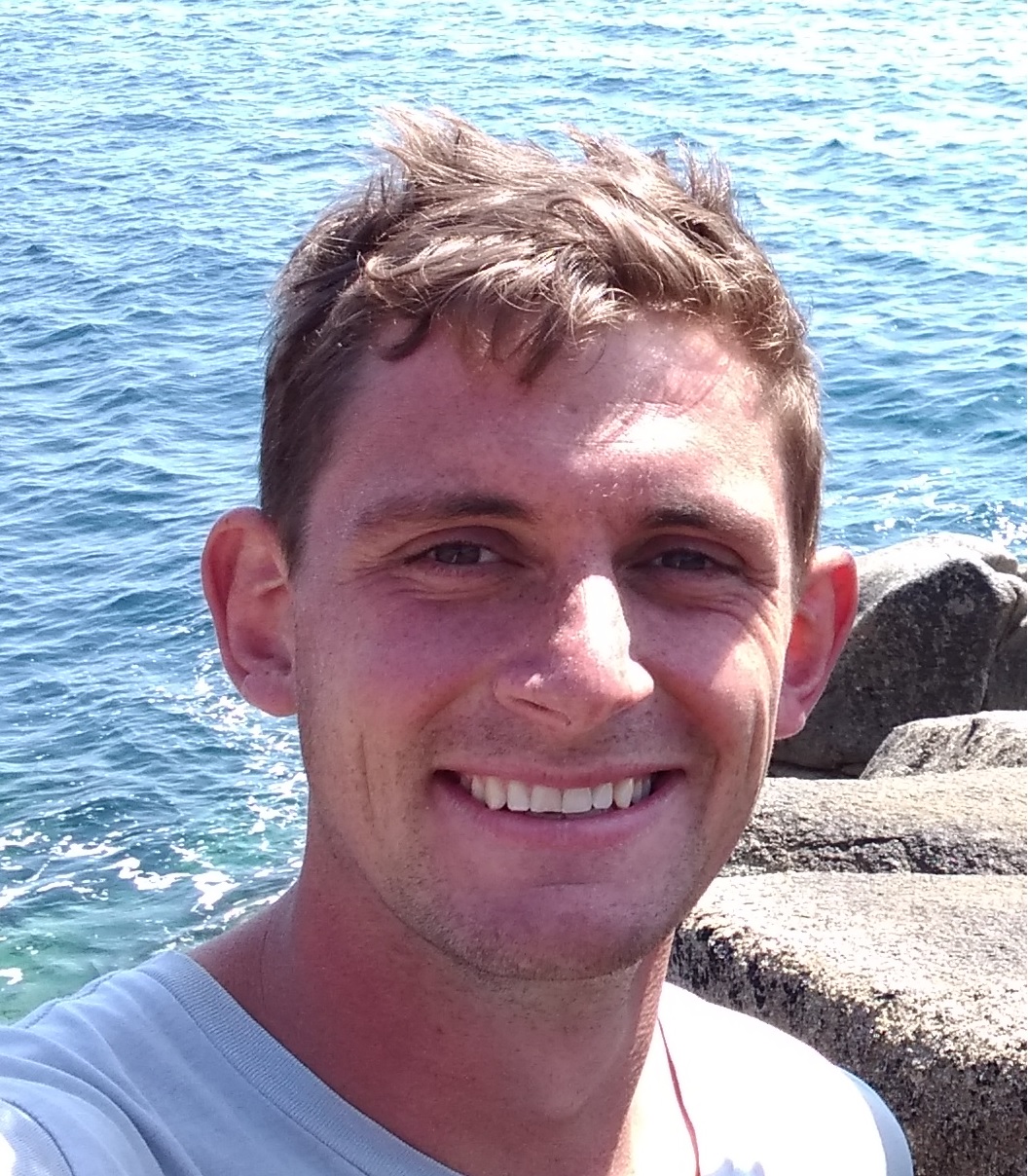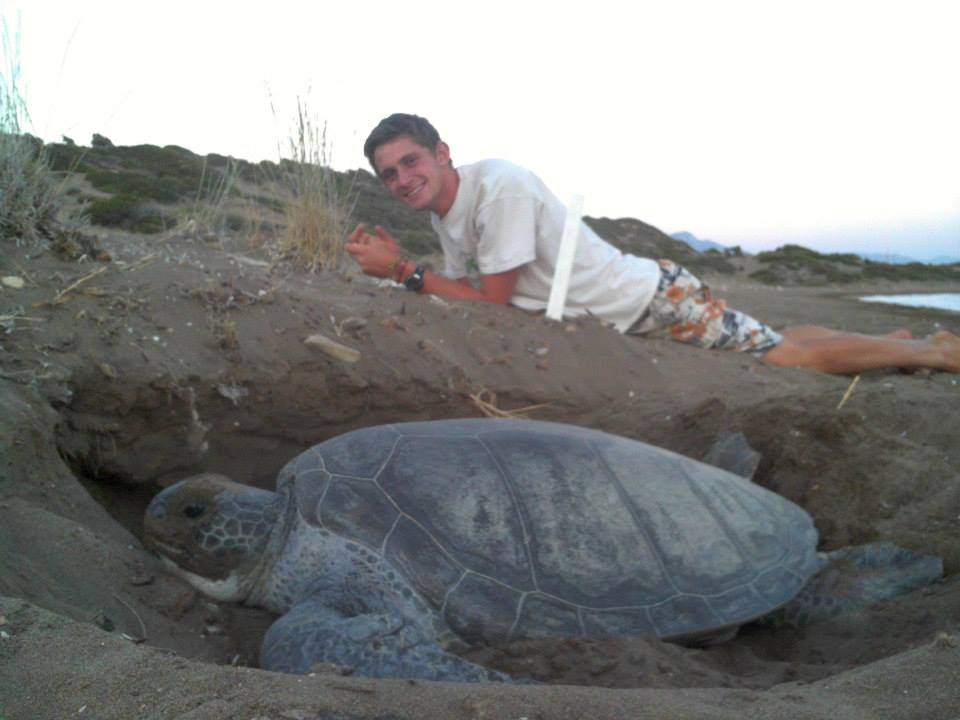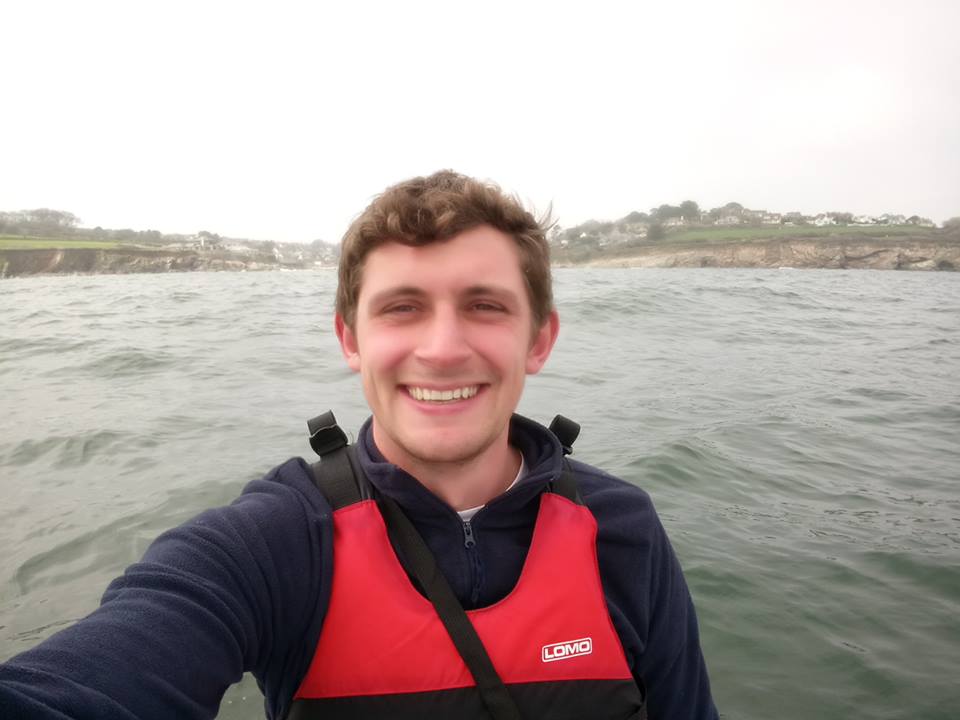We are looking back on some of our MSc graduates who have excelled in scientific research, ecology and conservation around the world since studying with us.
Today we meet Roger who graduated from MSc Conservation Science & Policy in 2016 and is now a Final-year PhD student at the University of Exeter investigating the ‘Human dimensions of reintroducing Eurasian beaver (Castor fiber) into England’.
Hi Roger! We’re glad that you are still working with us at the University of Exeter, why don’t you tell us a bit what you’re up to now?

I am currently a Final-year PhD student at the University of Exeter. My PhD is investigating the ‘Human dimensions of reintroducing Eurasian beaver (Castor fiber) into England’, and my work has involved working with the River Otter Beaver Trial, Devon Wildlife Trust, Plymouth City Council, and Cornwall Wildlife Trust.
What did you enjoy about studying in Penryn?
Two things. 1. The BioScience department. It felt friendly and collaborative and, rather than have a teacher-student feel, it felt encouraging and inclusive. 2. Living in Cornwall. The county is stunning, friendly, and great for anybody who loves the coast and the outdoors. Cornwall has an incredibly rich cultural and natural heritage. It was a privilege to have spent my student days living among the Cornish community and setting, there was a lot to discover. If you choose to study here, make sure to explore the opportunities that Cornwall itself has to offer, as well as the opportunities given by the University itself.
Do you have any particularly memorable highlights from your time studying at the University?
The field opportunities were brilliant. As well as local day trips, we had field course modules to the Isles of Scilly and Borneo in my undergraduate, and Kenya in my Masters. In the summers of my undergraduate, I was also fortunate to have spent time at the Marine Turtle Conservation Project, which has strong links to the department. The first summer I went was on a volunteer placement, and in the second year I was able to collect data to contribute towards my undergraduate research project in a three-month placement. It was hard work, but incredibly rewarding and afforded real, hands-on, and practical conservation experience. Outside of field work, I found the range of module options exciting to choose from and I felt able to tailor my course to my areas of interest.

How do you think the MSc helped to prepare you for your next steps into a PhD?
My research field is in the human dimensions of wildlife reintroduction, and my Masters course set me on track for this career path. As well as an exciting field course in Kenya in which we explored themes of human-wildlife conflicts (which also gave opportunity to spot some of Africa’s incredible wildlife), I also had the freedom to choose a research topic that met my interests. With thanks to Prof. Robbie Macdonald and Dr. Sarah Crowley who provided me with the project supervision, I was able to undertake a study within the River Otter Beaver Trial. Ultimately this project laid the foundations for me to build upon, with subsequent Research Assistant and PhD roles allowing me to continue with this research in greater depth whilst building a career path.
Why did you choose your career path … anything in particular you most enjoy about it?
I have always been interested in conservation, and increasingly I grew aware of the need to consider the human dimensions, including where there are beneficial human-wildlife interactions or where circumstances are more challenging. The opportunity to research the human dimensions of beaver reintroduction has excited me for it is a live conversation involving many different parties, and I feel very lucky to be able to conduct research in an area of wide interest, contributing to real-world outcomes. It has been especially rewarding to be able to work alongside a diverse group of both internal and external colleagues and partners; I have learned a lot from them all.

Finally, do you have any advice for those looking to pursue something similar?
If considering a PhD, make sure it is the right PhD for you. It is a big commitment, but if it is a subject which will interest you and you care about, then I cannot recommend the experience enough. I have enjoyed my project, particularly as it also has real-world practical application and has involved working with external partners. For conservation broadly, I would absolutely recommend building an understanding of the human dimensions as well as the ecological or practical. Most conservation is likely to involve dealing with people somewhere along the line, so learning to engage constructively and respectfully with others will really help!
Thank you Roger!
If you want to read more profiles from MSc Conservation Science and Policy graduates follow this link or explore our Graduate in Focus homepage to learn more about the degree programmes we have on offer!

